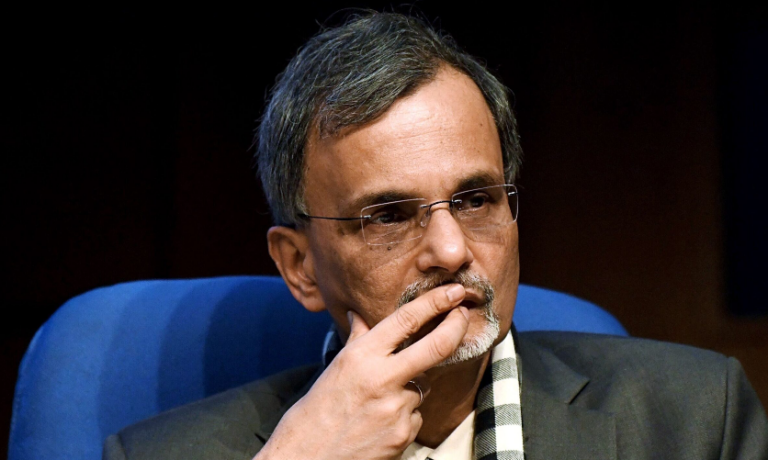
Wipro also said that wage hikes in FY26 will be decided “closer to the date”, as Chief Executive Officer Srinivas Pallia cautioned that uncertainties have “dramatically increased” and that tariffs against China could hurt the company’s European clients going forward.
Amid spiralling global economic tensions sparked by a renewed US-China trade war, India’s top IT firms—TCS and Wipro—have expressed uncertainty over their annual salary increases, a sign that even the services sector is not insulated from the impact of ongoing trade tensions.
TCS CEO K. Krithivasan, speaking at a press conference on April 10—a day after the US paused retaliatory tariffs on all countries except China—said: “We had spoken about improving market sentiments and early signs of discretionary spending revival in January. This was not sustained due to many of the discussions around tariffs. We are observing delays in decision-making and project starts with respect to discretionary investmentsWipro also said that wage hikes in FY26 will be decided “closer to the date”, as Chief Executive Officer Srinivas Pallia cautioned that uncertainties have “dramatically increased” and that tariffs against China could hurt the company’s European clients going forward.
This comes as the World Trade Organization (WTO) on Wednesday stated that the global volume of commercial services trade is now forecast to grow by 4 per cent in 2025 and 4.1 per cent in 2026—well below baseline projections of 5.1 per cent and 4.8 per cent, respectively. India was the eighth-largest exporter of commercial services globally in 2024, with exports valued at $374 billion, representing a 4.3 per cent share of world services exports. India also recorded a strong annual growth of 11 per cent in its commercial services exports last year. For companies such as TCS and Wipro that depend on global revenues, this is bad news.
The apex trade body said that the ongoing trade war is expected to slow the global services sector as tariff-induced declines in goods trade weaken demand for related services such as “transport and logistics”, while broader uncertainty dampens “discretionary spending” on travel and slows investment-related services.
“The recent downturn in trade prospects follows a strong performance in 2024, when the volume of world merchandise trade grew by 2.9 per cent and commercial services trade expanded by 6.8 per cent,” WTO said.
In value terms, world merchandise exports increased by 2 per cent to $24.43 trillion, indicating a decline in average export and import prices. Commercial services exports rose by 9 per cent to $8.69 trillion, reflecting strong demand across a range of sectors, WTO said.
The WTO report stated that demand for international travel, especially for leisure, can fluctuate sharply in response to external factors such as economic conditions, political stability, health or safety concerns, or unfavourable exchange rates.
“Travel could be the first sector, therefore, to be affected by economic uncertainty. Consumers may decide against trips and room reservations abroad if accommodation or flight prices increase, as this is discretionary spending. Although less prone to fluctuation, education- and health-related travel could still see a shift toward alternative destinations, for example, in response to changes in visa policies,” the WTO said.
Risks to growth of digitally delivered services
Trade tensions could lead to tighter regulations on intellectual property licensing, limiting the growth of digitally delivered services such as streaming, online gaming, and remote education platforms, thereby reducing export revenues for their providers, the WTO said.
“Financial services may also be affected, as the uncertain economic context can translate into lower investment and fewer transactions, including by consumers through credit cards,” the report added.
However, other commercial services are expected to be the least affected among service sectors. “They are forecast to rise by 5.3 per cent in volume terms—a deviation of less than one percentage point from the baseline scenario of 6.1 per cent growth. Among them, digitally delivered services are projected to maintain strong growth of 5.6 per cent in 2025, compared with 6.6 per cent in the baseline scenario, and 4.7 per cent in 2026,” the report said.
Services account for over a quarter of global trade
In 2024, services accounted for 26.4 per cent of global trade based on balance of payments statistics—the highest share since 2005. Notably, services exports rose by 13 per cent in Asia and by 8 per cent in both Europe and North America during the year.





